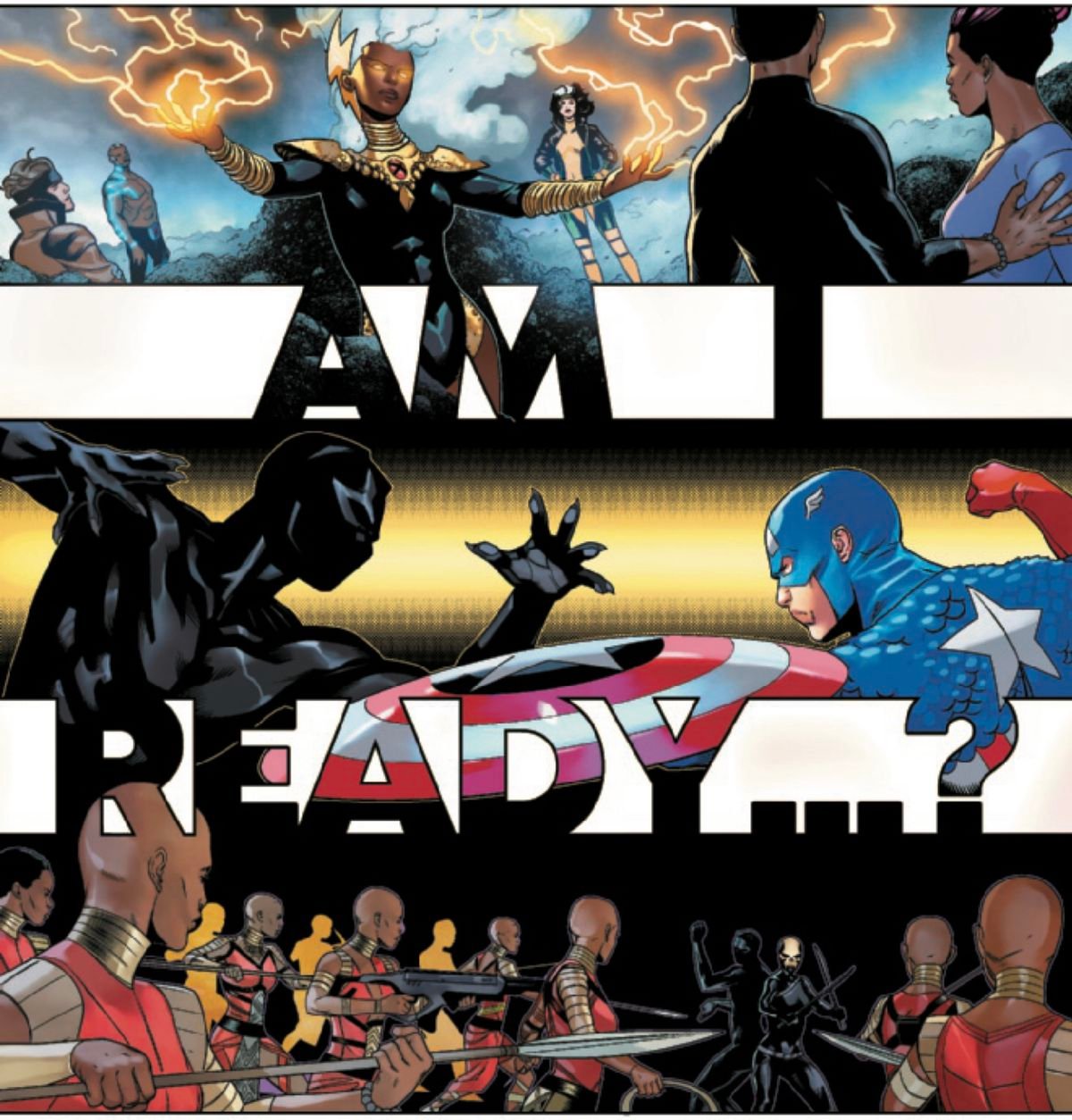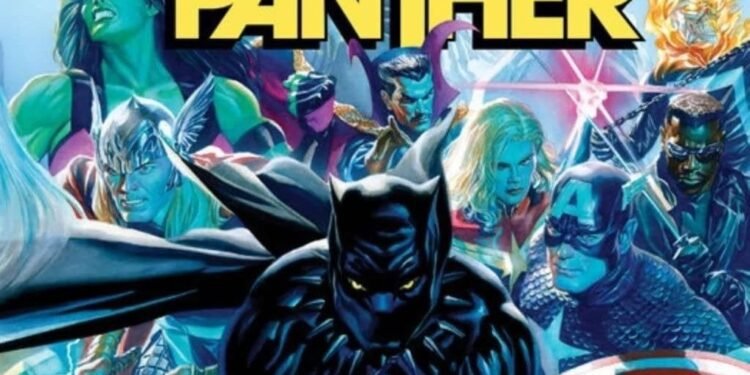Black Panther #1 is a new beginning for one of Marvel’s most popular characters. The titular hero is back from his adventures in space and finds a world of responsibilities, both in Wakanda and with the Avengers, laid at his feet. Is it good? Is it great? Is it a disappointment or a step back?
Well … it’s complicated.
Who is making Black Panther #1?
Taking over from the ambitious yet inconsistent run of Ta-Nehisi Coates (a characterization Coates himself might not disagree with), writer John Ridley (screenwriter to the masterful 12 Years a Slave; writer of the ambitious The Other History of the DC Universe and the more banal I Am Batman) starts a new era for both the comic and the character. Juann Cabal (Guardians of the Galaxy) has art duties, while Federico Blee is handling the colors.
What’s Black Panther #1 about?
T’Challa leads the Avengers to victory against generic brainless baddies™️, yet Captain America calls him to task. The Avengers need leadership consistently, and T’Challa, as a king on Earth and an emperor in the stars, isn’t always consistent.
(Have any Avengers been consistent, ever? Is anyone asking the hammer-less Thor or the dead Dr. Strange this? Questions that need answers.)
And the whole emperor/king thing? That’s not going too well either.
During Coates’ run, Wakanda became a democracy, with the Black Panther serving as figurehead and protector, but no longer an unquestioned leader. Sidelined politically and frustrated by the mundane minutiae of legislation, T’Challa excuses himself from political proceedings only to be confronted and comforted by a soldier. This mercenary tells T’Challa that the people want the appearance of responsibility, but will eventually yearn for a strong savior. T’Challa thanks him for “lyrically expressing what I’m feeling.”
The story ends with T’Challa confiding to Shuri that someone has cracked an old state secret of his, and its ramifications could cause chaos throughout the kingdom.
Why is this book happening now?
Given the noteworthy success of Black Panther across media, Marvel could Ill afford to let one of its most popular characters sit on the sidelines (especially with a movie scheduled — very tentatively — for next year.) As Coates has gone up, up, and away to pursue other ventures, Marvel needed to ensure its popular franchise would remain prominent.
Is there any required reading?

Frustratingly, no. Sure, it would be helpful to be familiar with the last 5 years of Black Panther stories, as T’Challa lost the faith of his people, regained it by creating a democracy, left for space to locate some time-displaced Wakandan astronauts, and returned the owner of an intergalactic empire that he liberated from the descendants of those lost space explorers. But there’s only a passing reference to the Empire, and the nature of democracy is explained in one panel. This is a book that might actually be better received if you didn’t read what came before.
Which, honestly, is a problem.
Is Black Panther #1 good?
Black Panther is more than a comic; The Black Panther is a character. And while the comic is fine, I find myself severely disappointed in the character. Nothing here is bad — much is actually pretty good — but nothing is particularly memorable. Nothing sticks with you.
Coates’ T’Challa, far from a swaggering swashbuckler, was guilt-ridden, pensive, cerebral … scared. He deferred to those wiser than him, many of whom were female (Romonda, Shuri, Storm, even the manifestation of the goddess Bast).
So to see T’Challa so disrespectfully dismissive to a woman in power; to see him embrace a militarist ideology that flies in the face of the democracy he willingly created; to watch him act unilaterally, recklessly, when we’ve seen him accomplish so much more with others — it’s galling and frustrating. Yet for some, maybe for many, what I call frustration might be preferable.
T’Challa here is more inline with previous characterizations from Christopher Priest and Reginald Hudlin, a return to character for a man who annulled a marriage in the middle of a fight and who willingly joined a group called the Illuminati. Still, to see Coates’ characterization rolled back so unceremoniously gave me pause.
This is, of course, only one issue, and there is a lot of story left to tell. Black Panther #1 is an effective, efficient romp that’s well worth your time. You should read it. You might love it in places where I don’t like it. And that’s ok. Black Panther #1, like all good art, is complicated.
One panel that popped

The last panel, with the foreshadowing of everything to come, is both artistically well done and foreboding for all it implies.
















































